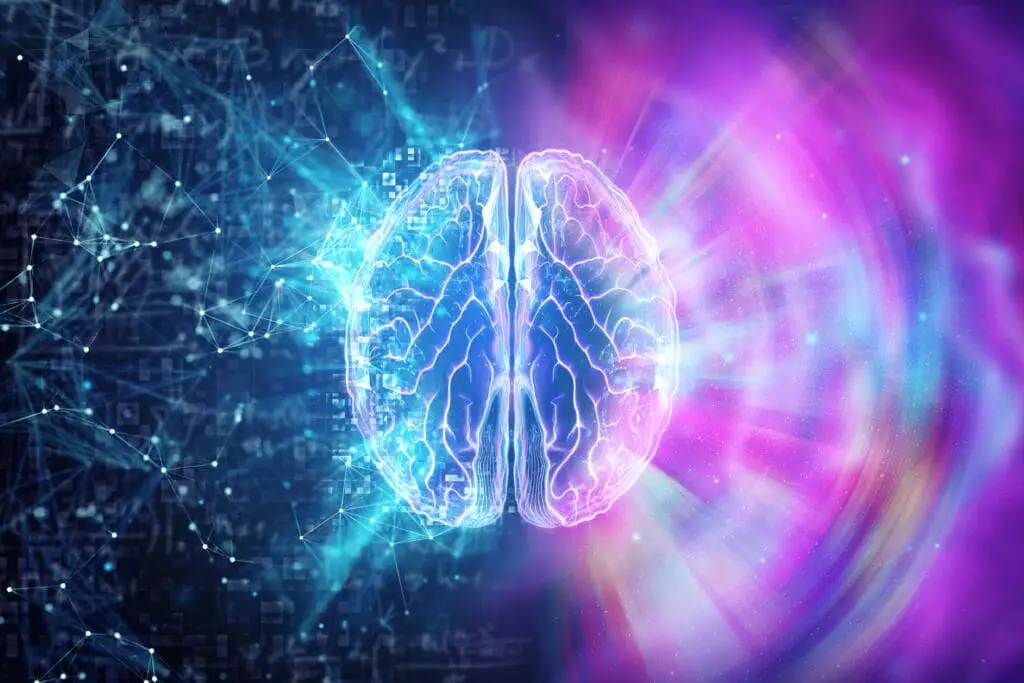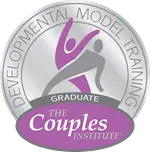In a world where logic often reigns supreme, it can be easy to overlook the power of emotions. But when it comes to therapy, finding a balance between logic and heart is essential. This is where Emotionally Focused Therapy (EFT) comes into play. With its roots in attachment theory and a focus on creating secure emotional bonds, EFT offers a unique approach to helping individuals, couples, and families heal and grow.
Through EFT, therapists guide clients toward a deeper understanding of their emotions and help them identify patterns that may be hindering their relationships. By tapping into the underlying emotional needs and fears, EFT aims to create a safe space for individuals to express their feelings and connect with others on a profound level. By doing so, EFT helps clients create stronger, more resilient relationships, allowing them to thrive both individually and collectively.
With its evidence-based approach and proven effectiveness, EFT has gained recognition as a powerful tool for transforming relationships and resolving emotional struggles. So, if you’re looking for a therapy that goes beyond logic to truly reach the heart, EFT may be the answer you’ve been searching for.
Understanding Emotionally Focused Therapy (EFT)
Emotionally Focused Therapy (EFT) is a form of therapy that was developed in the 1980s by Dr. Sue Johnson. It is based on the idea that emotions are at the core of our human experience and that they play a crucial role in shaping our relationships. EFT aims to help individuals and couples access and express their emotions in a safe and supportive environment.
One of the key concepts in EFT is attachment theory. Attachment theory suggests that humans have an innate need to form and maintain emotional bonds with others. These bonds provide a sense of security and support, allowing individuals to explore the world with confidence. When these bonds are threatened or disrupted, it can lead to distress and emotional pain. EFT helps individuals and couples identify and address these attachment issues, with the goal of creating stronger, more secure emotional bonds.
EFT is a collaborative and structured therapy approach. Therapists work closely with clients to identify patterns in their relationships and help them understand how their emotions are influencing their interactions. By increasing emotional awareness and fostering empathy, EFT aims to create a deeper understanding and connection between individuals and their loved ones.
The importance of emotions in therapy
Emotions are often seen as messy and irrational, something to be controlled or suppressed. However, in therapy, emotions are considered a valuable source of information and insight. Emotions can give us clues about our needs, desires, and fears. They can also provide valuable feedback about the quality of our relationships.
In traditional therapy approaches, the focus is often on problem-solving and changing behaviors. While these approaches can be effective, they may overlook the underlying emotional needs that are driving the problematic behaviors. EFT recognizes the power of emotions and seeks to create a safe space for individuals to explore and express their feelings.
By allowing clients to tap into their emotions, EFT helps them gain a deeper understanding of themselves and their needs. Through this process, individuals can develop greater self-compassion and acceptance, which can lead to profound personal growth and healing.
Uning the heart in relationships through EFT
Emotionally Focused Therapy (EFT) offers a powerful framework for integrating logic and heart in relationships. By recognizing the importance of emotions and attachment, EFT provides a pathway for individuals and couples to create deeper connections and foster emotional intimacy.
In relationships, it is common for partners to get caught up in patterns of blame, defensiveness, and withdrawal. These patterns can create distance and erode the emotional bond between partners. EFT helps couples identify these patterns and understand the underlying emotions and needs driving them.
By exploring these emotions and needs, couples can develop a greater understanding and empathy for each other. This paves the way for open and honest communication, allowing partners to express their desires, fears, and vulnerabilities.
EFT also helps couples develop healthier conflict-resolution skills. Instead of resorting to destructive behaviors, couples learn to engage in constructive dialogue, express their needs, and find mutually satisfying solutions. This not only strengthens the emotional bond but also fosters a sense of teamwork and collaboration. EFTs focus on emotion, but that doesn’t mean one has to be more emotional.
Logic comes in regarding how well EFT has been studied and researched. It is an emotional experience designed to get one out of their cognitive mind, but it’s backed up by research.
How EFT differs from other therapy approaches
While there are many different therapy approaches available, EFT stands out for its focus on emotions and attachment. Unlike cognitive-behavioral therapies that primarily focus on thoughts and behaviors, EFT delves into the emotional landscape of individuals and couples.
EFT recognizes that emotions are not just fleeting experiences but are fundamental to our human nature. By helping clients explore and understand their emotions, EFT aims to create lasting change in their relationships. EFT therapists believe that by addressing the underlying emotional needs, individuals and couples can create more secure and fulfilling relationships.
Another key difference is the emphasis on the therapeutic relationship in EFT. EFT therapists strive to create a safe and supportive environment where clients feel validated and understood. The therapist’s role is not to provide advice or solutions but to guide clients in their exploration of emotions and relationships.
The science behind emotionally focused therapy
Emotionally Focused Therapy (EFT) is firmly rooted in scientific research and has been shown to be effective in numerous studies. Research has consistently demonstrated the positive impact of EFT on relationship satisfaction, emotional well-being, and individual growth.
Studies have shown that EFT can lead to significant improvements in relationship quality, reducing conflict and increasing feelings of love and trust. EFT has also been found to be effective in addressing issues such as depression, anxiety, and trauma.
The effectiveness of EFT can be attributed to its focus on emotions and attachment. By addressing the underlying emotional needs, EFT helps individuals and couples create secure emotional bonds, which are the foundation of healthy and fulfilling relationships.
The three stages of EFT
Emotionally Focused Therapy (EFT) is typically divided into three stages, each with its own goals and tasks. These stages provide a framework for the therapeutic process and guide both the therapist and the clients.
Stage 1: De-escalation: In the first stage of EFT, the therapist helps the couple or individual identify and de-escalate the negative patterns that contribute to relationship distress. This involves exploring the underlying emotions and fears that drive these patterns and helping clients develop new ways of relating to each other.
Stage 2: Restructuring: Once the negative patterns have been identified and de-escalated, the therapist guides the clients in restructuring their interactions. This involves creating new emotional experiences that promote trust, safety, and connection. The focus is on building more secure emotional bonds and developing healthier communication and conflict-resolution skills.
Stage 3: Consolidation: The final stage of EFT focuses on consolidating the gains made in therapy and preparing the clients for the future. The therapist helps the clients integrate the new ways of relating into their daily lives and provides support as they navigate challenges and setbacks. The goal is to create lasting change and ensure that the clients have the tools and resources to maintain their progress.
Techniques used in emotionally focused therapy
Emotionally Focused Therapy (EFT) utilizes a range of techniques and interventions to help clients explore and address their emotions and attachment needs. Some of the common techniques used in EFT include:
1. Reflecting and validating emotions: EFT therapists actively listen to clients’ emotions and reflect them back, helping clients feel understood and validated. This creates a safe space for clients to express their emotions and helps them develop greater self-awareness.
2. Creating enactments: Enactments involve the therapist guiding the clients in reenacting their emotions and interactions in the therapy room. This allows clients to experience and explore their emotions in real-time, providing valuable insights into their relationship dynamics.
3. Using experiential techniques: EFT often incorporates experiential techniques such as guided imagery, role-plays, and emotion-focused exercises. These techniques help clients access and process their emotions in a more direct and experiential way.
4. Promoting bonding behaviors: EFT encourages clients to engage in behaviors that promote emotional connection and bonding. This may involve expressing love and appreciation, engaging in intimate conversations, or engaging in activities that foster trust and closeness.
Conclusion: Embracing the power of emotions in therapy
Emotionally Focused Therapy (EFT) offers a unique and powerful approach to therapy, one that recognizes the importance of emotions in shaping our relationships and well-being. By helping individuals and couples tap into their emotions and address their attachment needs, EFT provides a pathway for healing, growth, and connection.
In a world that often values logic and rationality above all else, it is important to remember the power of emotions. Emotions are not something to be feared or suppressed but rather embraced and understood. By integrating logic and heart, individuals and couples can create stronger, more resilient relationships that allow them to thrive both individually and collectively.
So, if you’re looking for a therapy approach that goes beyond logic to truly reach the heart, Emotionally Focused Therapy (EFT) may be the answer you’ve been searching for. Give yourself the gift of emotional healing and watch as your relationships transform and flourish.







